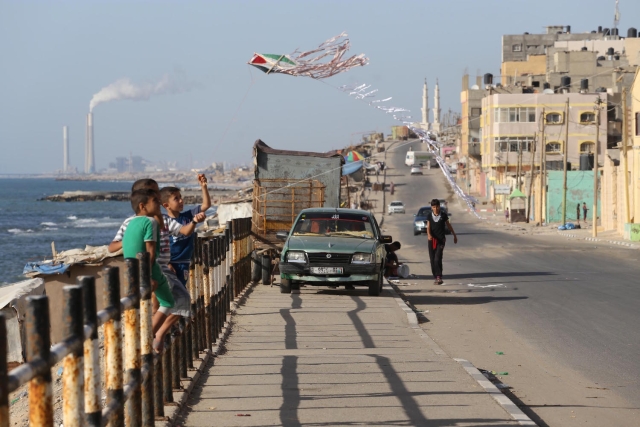Israel has taken significant steps in its preparations for the post-Hamas era in the Gaza Strip, although achieving this goal may still require some time. Presently, two separate teams have been established within the Israel Defense Forces and the Ministry of Foreign Affairs. These teams are diligently working towards evaluating the pros and cons of various potential governmental alternatives that could govern Gaza once hostilities cease. The underlying principle of all these alternatives is clear: Hamas will no longer be in control of Gaza.
The surge in political activity in Israel follows explicit statements from U.S. President Biden and other Western leaders. They have expressed their expectations for the establishment of a Palestinian state in both the West Bank and Gaza after the cessation of hostilities.
⚡️IDF: Over the last few hours, combined forces led by IDF ground troops, struck a Hamas terrorist outpost in the northern Gaza Strip. In addition, the forces killed dozens of terrorists, struck anti-tank missile launching cells and anti-tank missile launch and observation posts,… pic.twitter.com/yxBkkxEWJX
— Israel War Room (@IsraelWarRoom) October 31, 2023
Within Israel, there is still a desire to tread carefully around the political issue at hand. A senior Israeli official, speaking to reporters from "Israel Hayom," emphasized that "in both the reduced cabinet and the expanded cabinet, there is complete consensus on the political objective of this operation, which is the removal of the Hamas regime. However, delving into the political framework for the post-conflict phase may lead to internal disagreements within Israel and with international stakeholders. Such disputes could undermine the attainment of our war goals. Therefore, our ambition is to navigate this field prudently. We must exercise wisdom in our approach."
Cabinet ministers have presented diverse and at times innovative ideas regarding the governance of Gaza after Hamas. Some of the proposed options include an international governing body with distinctive characteristics and a collaborative Egyptian-Israeli administration, among others. One suggestion under discussion was the appointment of Mohammed Dahlan, the former Fatah leader in Gaza, to oversee the Strip. However, Dahlan has publicly expressed his opposition to this idea in media interviews.
Simultaneously, recognizing that disregarding the political aspect could potentially expose Israel to unfavorable developments on the ground after hostilities cease, the two aforementioned teams have sprung into action. These teams are actively exploring alternatives. To maintain a low profile, there has been no inter-ministerial discussion at this stage, and each team is working independently.
You f*cked with the wrong army, Hamas.
— Aviva Klompas (@AvivaKlompas) October 31, 2023
Here's the message from the IDF's Head of the Southern Command to soldiers on the ground.
“Southern Command forces this is the Commander. We are striking Hamas and the terrorist organizations in the Gaza Strip. We have one goal - victory.… pic.twitter.com/CEhK65Oarm
As for the proposal to reintroduce the Palestinian Authority into Gaza, this idea faces strong opposition from most cabinet ministers, including Minister Gideon Sa'ar. Conversely, Ministers Benny Gantz and Gadi Eisenkot advocate for strengthening the Palestinian Authority. This divergence of views underscores the complexity of the matter. However, for now, the cabinet members are in agreement that unity must be maintained, and they are refraining from engaging in substantive discussions on the issue.


